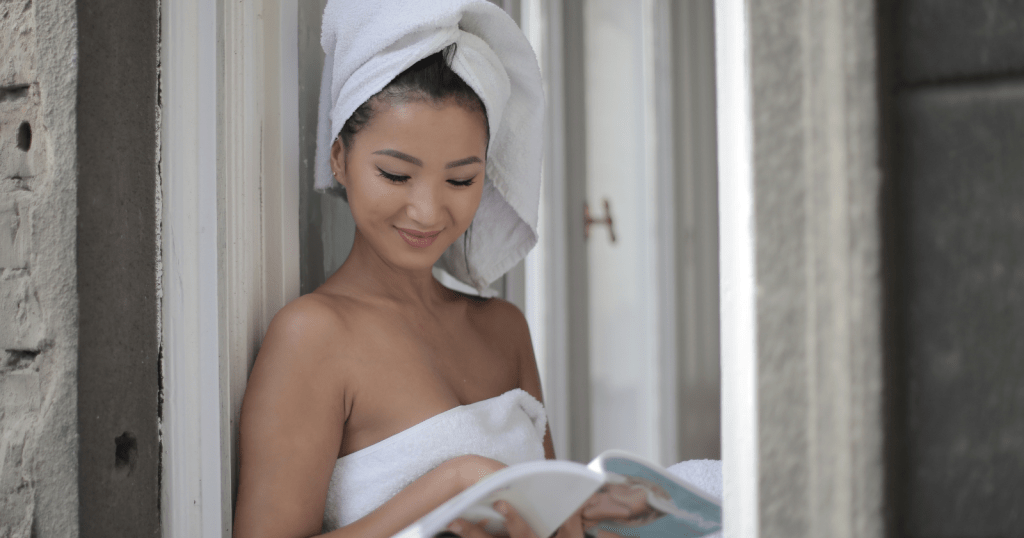For something as natural as exploring your own body, it’s surprising how many myths and misconceptions still surround the topic of self-pleasure.
Misinformation has been passed down for generations, often creating unnecessary shame, guilt, or confusion about what is actually a healthy and normal practice.
From warnings about supposed health risks to the belief that it harms relationships, these myths have discouraged people from embracing an act that can have real physical and mental benefits.
The good news? Science tells a different story.
Many of the things you’ve heard simply aren’t true, and it’s time to separate fact from fiction.
In this article, we’re debunking seven of the most common myths about self-pleasure, giving you a clearer, more informed perspective on something that is not only normal but also beneficial.
1) Self-pleasure is only for the lonely
In the quiet moments of solitude, self-pleasure becomes a canvas for self-awareness, not a refuge for the lonely. Many assume it’s solely for those lacking in companionship, but this notion is far from the truth.
Self-pleasure is a personal choice that spans across various lifestyles and relationship statuses. It’s a practice that enhances self-understanding and can complement a fulfilling romantic relationship.
A study published in the Journal of Sexual Medicine found that individuals who engage in regular self-pleasure report higher levels of sexual satisfaction and self-esteem. It’s not about filling a void, but about celebrating one’s own body and desires.
Picture self-pleasure as a form of self-care, akin to meditation or a warm bath, nurturing your mental and emotional well-being.
So, the next time you find yourself in a moment of self-reflection, embrace it as a celebration of self-discovery, not a sign of solitude.
2) It leads to addiction
The fear of becoming addicted to self-pleasure often looms large, like a shadow in the night.
However, the reality is less daunting. While it’s possible to engage in any activity excessively, the concept of addiction to self-pleasure is largely misunderstood.
According to experts, including Dr. Justin Lehmiller, a renowned researcher on sexual behavior, the key is balance and understanding your motivations. For most, self-pleasure is a natural and healthy part of life.
However, if you find it interfering with daily activities or relationships, it might be worth exploring the underlying reasons with a therapist.
Consider self-pleasure as a part of a balanced lifestyle, akin to enjoying a favorite hobby or exercise routine. It’s an opportunity to engage with yourself, not a slippery slope to dependency.
Remember, moderation is the melody that keeps life’s orchestra in harmony.
3) It decreases sexual performance
A common myth whispers that self-pleasure diminishes sexual performance, leading to anxiety and self-doubt.
On the contrary, research suggests it can enhance sexual health by increasing awareness of one’s preferences and responses. The Kinsey Institute highlights that individuals who understand their bodies through self-pleasure often communicate better with partners, leading to more fulfilling sexual experiences.
Think of it as a practice session before the big game, honing your skills and boosting your confidence. When you know what brings you pleasure, you can share that knowledge with a partner, fostering a deeper connection.
Self-pleasure becomes an ally, not an adversary, in your sexual life. Use it as a tool for self-awareness, a way to explore and understand your body’s unique language.
4) It’s unnatural
Some myths suggest that self-pleasure is an unnatural act, a deviation from the norm. Yet, history and science paint a different picture.
Self-pleasure is a natural behavior observed across many species, including primates and dolphins. It’s a biological process with roots in evolution, serving various purposes such as stress relief and reproductive health.
Embracing self-pleasure means acknowledging our nature, as supported by countless studies and historical accounts.
If you’re curious about enhancing this natural experience, consider exploring products designed to complement your journey. For instance, the LELO SONA Cruise is a highly recommended sonic massager that many find enhances their experience.
5) It’s only for men
This myth stands like a wall, dividing genders with misconceptions. You see, self-pleasure is for everyone, regardless of gender.
Studies consistently show that individuals of all genders engage in self-pleasure for similar reasons: relaxation, pleasure, and exploration.
According to Dr. Debby Herbenick, a sexual health expert, self-pleasure is a human experience, not limited by gender. Women, men, and non-binary individuals all benefit from understanding their bodies and desires.
It’s about personal empowerment and breaking free from gender stereotypes.
So, whether you’re a woman exploring your own body or a man seeking a deeper connection with yourself, know that self-pleasure is your right and an integral part of your sexual health journey.
6) It ruins relationships
Picture a bridge that connects two shores, representing the bond between partners. The myth that self-pleasure ruins relationships is like a gust of wind attempting to destabilize this bridge.
In reality, self-pleasure can reinforce, not weaken, the connection between partners. By understanding your own desires, you bring greater intimacy and communication into the relationship.
Research from the Journal of Sex Research indicates that couples who discuss self-pleasure and incorporate it into their relationship often experience higher satisfaction levels. It’s not about replacing a partner but enhancing the shared experience.
Consider discussing boundaries and desires with your partner, fostering an environment of trust and openness. Remember, a strong relationship is built on communication, understanding, and mutual respect.
7) It’s shameful
Shame is a heavy cloak that many wear when it comes to self-pleasure, woven from societal norms and cultural beliefs.
It’s time to shed that cloak and stand in the warmth of understanding and acceptance. Self-pleasure is a normal, healthy aspect of human sexuality that deserves respect and openness.
As Dr. Brené Brown, a researcher known for her work on vulnerability, states, “Shame corrodes the very part of us that believes we are capable of change.” Embrace self-pleasure as a form of self-love and acceptance.
By acknowledging it as a natural part of your life, you empower yourself to live authentically. Let go of the shame and let understanding guide you, allowing for a more fulfilled and connected life.
Replacing myths with understanding
Misinformation about self-pleasure has persisted for far too long, creating unnecessary guilt and confusion around a natural and healthy practice.
But when you strip away the myths, what remains is the truth—self-pleasure is normal, safe, and even beneficial for both your physical and mental well-being.
It doesn’t harm relationships, weaken desire, or lead to any of the exaggerated consequences people once feared.
By embracing a more informed perspective, you allow yourself the freedom to explore and understand your own body without shame or hesitation.
Knowledge is power, and when it comes to self-pleasure, it’s time to let go of outdated fears and replace them with confidence, self-awareness, and a healthier relationship with your own pleasure.
With over 15 years of experience in sex education and therapy, Sarah Bennett has dedicated her career to empowering individuals and couples to build fulfilling, intimate connections. As a passionate advocate for open, informed discussions about sexuality, Sarah combines expertise with a compassionate, yet straightforward approach. You can find her with a book on her favorite park bench during her down time.





